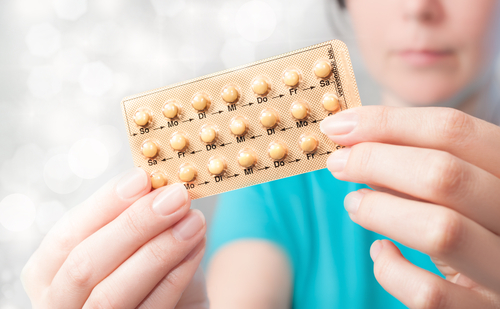Short answer
In some cases, birth control pills may be bad for you. Each pill contains a dosage of hormones designed to chemically alter the levels in your own body—and everyone reacts to those changes differently.
Long answer
Believe it or not, birth control pills have been around for well over 50 years now. The oral contraceptive is one of the most popular forms of birth control; it’s currently used by an estimated 100 million women worldwide, with about 12 million users right here in the United States.
So with such widespread use over a half-century span, birth control pills must be safe, right?
Somewhat. But before we get into that explanation, it’s important to understand how birth control pills really work. While there are many different kinds, most pills contain two hormones: estrogen and progestin. The hormones in the pill interact with those in your body, causing biological changes that help prevent pregnancy. Primarily, the hormone fluctuation prevents your eggs from leaving your ovaries. It also makes your cervical mucus thicker, which is an additional safeguard to help keep sperm from getting to your eggs.
Birth control pills also cause other changes in your body, which are different for virtually everyone. Some of these changes are positive—women taking the pill may experience fewer acne breakouts, lighter periods, less cramping, relief from menstrual migraines and even a reduced risk of ovarian cancer. However, there are also some risks. Some women experience a reduced sex drive, breakthrough bleeding, severe mood swings, increased risks for certain types of cancer and blood clots.
Although blood clots are extremely rare, they do happen. An estimated 7 in 10,000 women experience blood clots every year, and taking birth control pills triples your odds. Those are some scary numbers, but there are precautions you can take to reduce your risk.
First, consult your physician before taking any form of birth control pill. Certain conditions and lifestyle choices can make you more prone to clotting—high blood pressure, migraines, diabetes and smoking cigarettes. Your physician will be able to evaluate your risk factors and make the best recommendations for your body.
Secondly, make sure you know your family history. You might not have any of the conditions listed above, but if high blood pressure, diabetes or certain clotting disorders run in your family, it’s important for your physician to know that.
Finally, know the symptoms of a clot. If you begin experiencing shortness of breath, chest pains, leg pain/warmth, redness, swelling or your begin coughing up blood, seek medical attention immediately.
Possible short-term side effects
- breakthrough bleeding
- nausea
- breast tenderness
- blood clot
Possible long-term side effects
- increases risk of liver cancer
- increases risk of cervical cancer
Ingredients to be aware of
- estrogen
- progestin

Benefits
- helps prevent pregnancy
- alleviates menstrual cramping
- lightens periods
- helps guard against pelvic inflammatory disease
- reduces acne
- reduces risk of endrometrial/ovarian cancer
 Approved by
Approved by 















